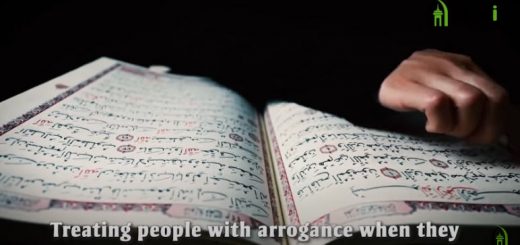The Choice of a Good Wife
Ibraahim ibn Saaleh al-Mahmud
Source: Winning the Heart of Your Husband
A good wife is the cause of happiness in this world. She helps her husband to obey Allah it, and offers him spiritual tranquility and peace. The Prophet (Peace be upon him) said: “Life is a pleasure and the best of its pleasures is a good wife.”[1]
Islam has ordered a man to find out about his future wife. He has to make sure that she is a good wife and that she practices all her religious obligations. If a wife knows nothing about Islam and does not meet her religious obligations, she will make a fool of her husband in front of people and spoil his life.
The Prophet – has insisted that a man should choose his future wife according to religious considerations because such a wife will be a help and support for her husband’s most important concern as a Muslim, that is, his religion.
The Prophet (Peace be upon him) said: “If Allah has blessed any of you with a good wife, He has helped him with half of his religion, so he should fear Allah with regard to the other half.”[2]
On the authority of Sa’d Ibn Abi Waqqas (may Allah be pleased with him), the Prophet said: “Four things are the cause of happiness: A good wife, a large house, a good neighbour and a comfortable transport. And four things are the cause of misery: A bad neighbour, a bad wife, an uncomfortable transport and a small house.”[3]
The Prophet – said: “The best woman among you is she who pleases her husband when he looks at her, obeys him when he orders her and is faithful towards him regarding her person and his property if he is absent.”[4]
The Prophet said: “A woman is married for four things, i.e., her wealth, her family status, her beauty and her religion. So you should marry the religious woman (otherwise) you will be a loser.”[5]
On the authority of Thawbaan (may Allah be pleased with him): “We were with the Prophet (Peace be upon him) on one of his journeys when the verse, (those who hoard up gold and silver, and spend it not in the Way of Allah, announce unto them a painful torment)[6] was revealed.
One of his Companions said, “It has come down about gold and silver. Would that we knew which property is best so that we might acquire it!” He replied, “The best property is a tongue which mentions Allah, a grateful heart, and a believing wife who helps a man with his faith.”[7]
Co-operation between the husband and wife to obey Allah (Glorified and Exalted be He) results in a mutual understanding between them. Co-operation is the symbol of a Muslim society, Allah (Glorified and Exalted be He) says, (Help you one another in virtue and piety)[8] The Prophet also encourages couple to help each other in reaching the perfect position in Faith. He urges them to sincerely worship Allah, especially during the “Night Prayers“.
Abu Hurairah (may Allah be pleased with him) said that the Prophet said: “May Allah have mercy on a man who gets up at night and prays, and awakens his wife; if she refuses, he should sprinkle water on her face. May Allah have mercy on a woman who gets up at night and prays, and awakens her husband; if he refuses, she should sprinkle water on his face.”[9]
Abu Saeed al-Khudri said that the Prophet said:
“When a man himself wakes at night and wakens his wife and they pray two Rak’ ahs together, they are recorded among the men and women who make much mention of Allah”[10]
An old woman whose face was shining with joy and beauty was asked: What sort of makeup do you use?
She said: I use for my lips the Truth, for my voice remembrance of Allah, for my eyes lowering my gaze, for my hand performance of good deeds, for my body sincerity and straightness, for my heart the love of Allah, for my mind wisdom, for my soul obedience of Allah and for my desire the Faith (Iman).
[10] Abu Dawud, an-Nasa’i’, Ibn Majah, al-Hakim, adh-Dhahabi, and al-Iraqi.
Number of View :2641













